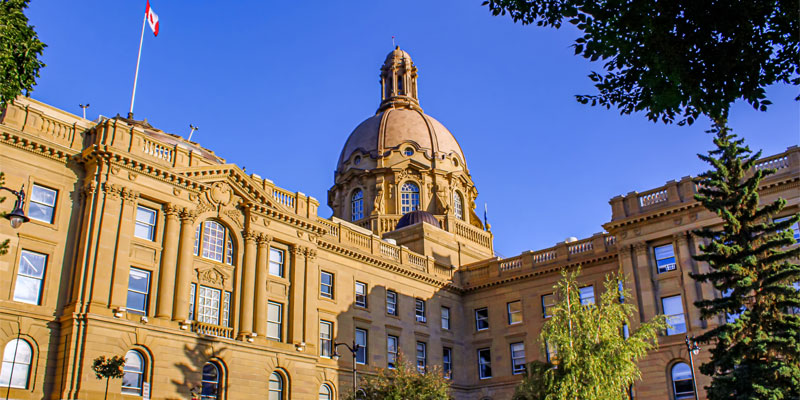Kenney should draw inspiration from Klein reforms and reduce spending quickly

Back in the early 1990s, in the face of serious fiscal challenges, former premier Ralph Klein changed the trajectory of Alberta’s government finances and set the stage for a decade of fiscal stability. Today, with $63.5 billion in projected net debt (total debt minus financial assets) in 2020/21, the Kenney government could learn some important lessons the late premier.
Some quick Alberta history. In the years before Klein, excessive government spending and an overreliance on natural resource revenues led to a rapid deterioration in the province’s fiscal position when those revenues declined. In 1985/86, Alberta began to incur persistent budget deficits. Consequently, by 1993/94, the province had accumulated $23.8 billion (inflation-adjusted) in net debt.
To tackle Alberta’s debt problem, the Klein government included swift broad-based spending reform in the 1993 Budget. The government also ordered each provincial ministry to “justify its existence,” set clear objectives over a three-year horizon (including a plan for spending reductions) and report quarterly on its progress. This forced each ministry to re-examine their business model. As a result, nominal government program spending (total spending minus interest costs) dropped by 21.6 per cent over just three fiscal years.
As noted in a our new study published by the Fraser Institute, the decision to reduce spending—as opposed to increase taxes—was made with recognition for the negative effect tax hikes could have on the economy and with consideration for the source of Alberta’s fiscal challenges. “For years, governments in Canada have been living beyond their means,” said then-Alberta treasurer Jim Dinning. “Governments have put off paying bills until tomorrow in the mistaken belief that revenue will catch up to spending. Overspending, not lack of revenue, is the problem. And every delay in fixing this problem increases the amount of debt and makes the solution more painful.”
A key feature of the Klein reforms was that they relied on factors within the government’s control (specifically, spending reductions) to eliminate the budget deficit rather than hoping for help from external factors such as spikes in natural resource revenues. In fact, the Klein government balanced the budget despite relatively low natural resource revenues.
Again, the deficit was quickly eliminated, debt levels dropped, and debt-interest payments (as a share of revenue) fell from a high of about 11 per cent in the mid-90s to nearly zero. In other words, after balancing the budget and paying down debt, the province could focus spending on programs and services for Albertans rather than debt interest.
The fruits of the Klein reforms outlived the reform period itself. The province ran a string of budget surpluses over the next 14 years. And Alberta would become the only “debt-free” province in Canada for more than 15 years.
Today, Alberta faces a situation similar to the pre-reform era. In the early 2000s, natural resource revenues climbed and governments fell back into the pattern of routinely increasing program spending beyond the level needed to account for inflation and population growth, and well beyond the pace of revenue growth. Provincial government program spending is projected to reach $13,644 per Albertan in 2020/21—about $6,200 more per person than during the Klein reform era (1996/97).
As in the past, budget deficits emerged when natural resource revenues fell. Specifically, since 2007/08, Alberta has run budget deficits every year (excluding 2014/15). With the added impact of COVID, Alberta now faces $63.5 billion in net debt. A remarkable reversal in fiscal fortunes.
When the province emerges from the current recession, its fiscal challenges—which have been exacerbated over the past year—will be waiting. Like the Klein government in the 1990s, the Kenney government must reduce spending to restore provincial finances, rather than hope for a strong resource revenue rebound, which may or may not occur.
Authors:
Subscribe to the Fraser Institute
Get the latest news from the Fraser Institute on the latest research studies, news and events.


